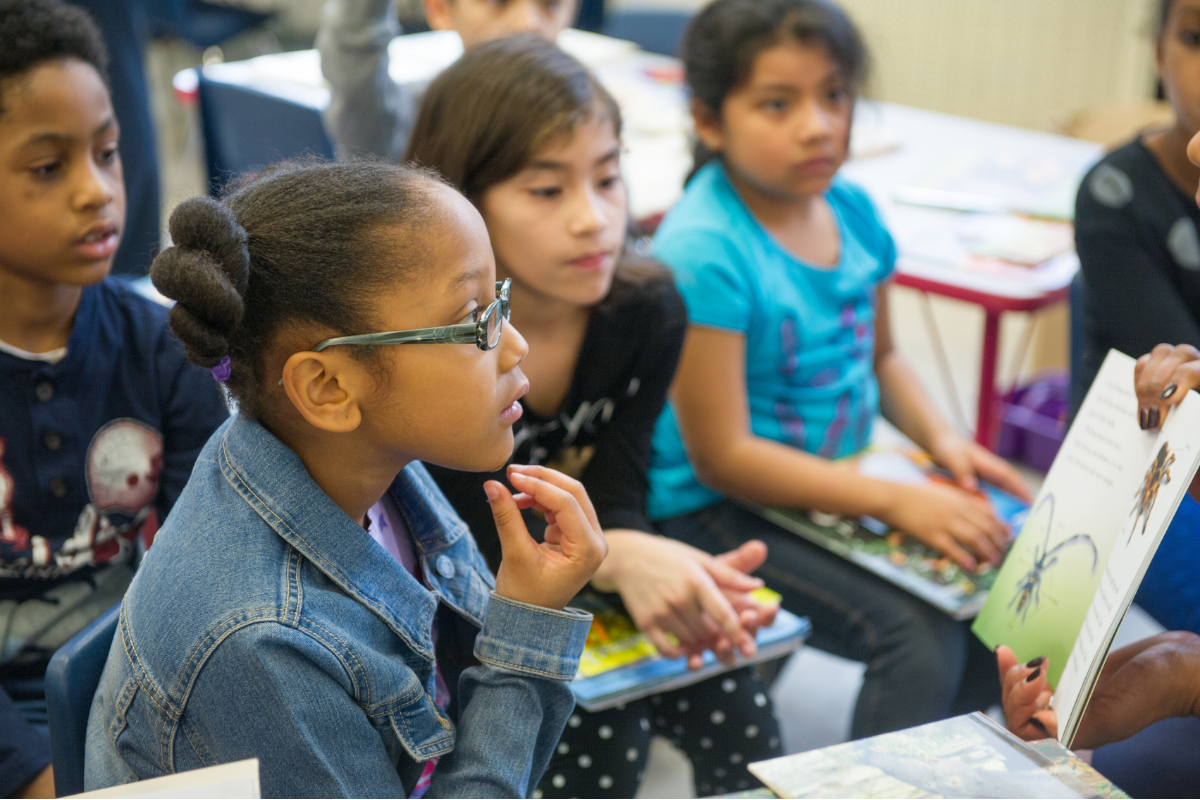
How Trauma Is Impacting Children in the Classroom
In a recent survey of educators, we asked our network of educators about the impact of COVID-19 on students. The results show that kids are preoccupied with the pandemic, worried about their friends and family, and concerned about their own health. The survey confirmed what teachers and parents already know—the pandemic poses a significant barrier to learning. This is true regardless of age or whether students are learning in person or virtually.
Signs of Trauma
The research conducted by First Book explores why educators and parents are choosing to get the vaccine and to Give Learning a Shot, but it also amplifies the concern of trauma for learners in underserved communities.
Watch this 2-minute video interview that explores how trauma is showing up in the classroom.
You can download the COVID-19 Vaccine Time Saver in English or Spanish, to help you make an informed decision about the vaccine.
Addressing Trauma in the Classroom
After a year of learning (and teaching) from home, navigating new digital challenges, and coping with the sudden changes of 2020, educators are asked to continue to find ways to support their students, especially as they’re struggling. The school community is a key part of the support system for students experiencing trauma. As children spend much of their time in school, having the right resources, individuals, and practices in place can help them heal, and ultimately succeed academically, socially, and behaviorally.
First Book’s Trauma Toolkit
The topic of childhood trauma is broad and First Book’s Trauma Toolkit was designed to save educators time by culling together and highlighting the most salient and actionable, using network member feedback as the starting point for this work.
The toolkit helps educators answer questions like:
- What do I do if my student is having a meltdown?
- How can I support a child who is experiencing severe trauma?
- How do I teach my students to self-manage their emotions?
Five more top questions are answered in the toolkit with supported material to help educators show their students and themselves self-compassion.
Healthy Feelings and Relationships Collection
The toolkit for educators was designed to work in conjunction with First Book’s Healthy Feelings and Relationships collections of books and free reading guides. Available through the First Book Marketplace, these free reading guides help educators teach social and emotional learning to Pre-K – 7th graders using picture books and graphic novels.
To help children in your classroom, working through trauma and impacted by COVID-19, download our free Trauma Toolkit. Free for any educator. You can also find additional free resources when you visit the Marketplace.
Join the Network
Educators can join First Book’s network — the largest and fastest growing network of educators, schools, and programs serving children in need across the United States and Canada — to bring these titles and many more to your classroom.
